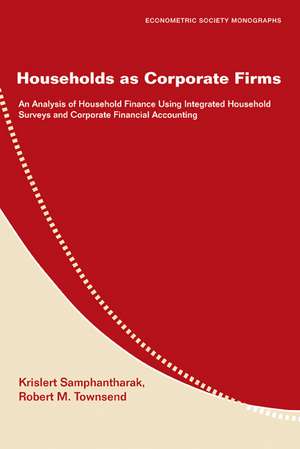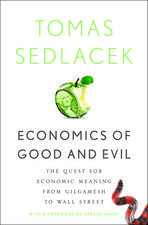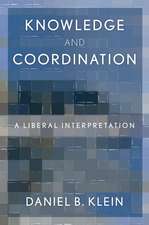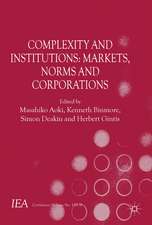Households as Corporate Firms: An Analysis of Household Finance Using Integrated Household Surveys and Corporate Financial Accounting: Econometric Society Monographs, cartea 46
Autor Krislert Samphantharak, Robert M. Townsenden Limba Engleză Paperback – 29 noi 2009
| Toate formatele și edițiile | Preț | Express |
|---|---|---|
| Paperback (1) | 257.05 lei 6-8 săpt. | |
| Cambridge University Press – 29 noi 2009 | 257.05 lei 6-8 săpt. | |
| Hardback (1) | 693.98 lei 6-8 săpt. | |
| Cambridge University Press – 13 dec 2009 | 693.98 lei 6-8 săpt. |
Din seria Econometric Society Monographs
-
 Preț: 308.06 lei
Preț: 308.06 lei - 14%
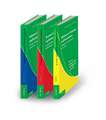 Preț: 2544.95 lei
Preț: 2544.95 lei -
 Preț: 256.66 lei
Preț: 256.66 lei -
 Preț: 441.20 lei
Preț: 441.20 lei -
 Preț: 366.95 lei
Preț: 366.95 lei -
 Preț: 258.04 lei
Preț: 258.04 lei -
 Preț: 287.28 lei
Preț: 287.28 lei -
 Preț: 326.53 lei
Preț: 326.53 lei -
 Preț: 371.03 lei
Preț: 371.03 lei -
 Preț: 400.76 lei
Preț: 400.76 lei -
 Preț: 348.09 lei
Preț: 348.09 lei - 11%
 Preț: 451.57 lei
Preț: 451.57 lei -
 Preț: 327.92 lei
Preț: 327.92 lei -
 Preț: 364.84 lei
Preț: 364.84 lei -
 Preț: 405.10 lei
Preț: 405.10 lei -
 Preț: 322.29 lei
Preț: 322.29 lei -
 Preț: 288.25 lei
Preț: 288.25 lei -
 Preț: 312.95 lei
Preț: 312.95 lei -
 Preț: 358.28 lei
Preț: 358.28 lei -
 Preț: 366.03 lei
Preț: 366.03 lei -
 Preț: 271.39 lei
Preț: 271.39 lei -
 Preț: 326.53 lei
Preț: 326.53 lei -
 Preț: 365.22 lei
Preț: 365.22 lei -
 Preț: 313.90 lei
Preț: 313.90 lei -
 Preț: 298.29 lei
Preț: 298.29 lei -
 Preț: 414.73 lei
Preț: 414.73 lei -
 Preț: 354.22 lei
Preț: 354.22 lei -
 Preț: 322.51 lei
Preț: 322.51 lei -
 Preț: 295.75 lei
Preț: 295.75 lei -
 Preț: 321.14 lei
Preț: 321.14 lei -
 Preț: 361.96 lei
Preț: 361.96 lei
Preț: 257.05 lei
Nou
Puncte Express: 386
Preț estimativ în valută:
49.19€ • 51.17$ • 40.61£
49.19€ • 51.17$ • 40.61£
Carte tipărită la comandă
Livrare economică 15-29 aprilie
Preluare comenzi: 021 569.72.76
Specificații
ISBN-13: 9780521124164
ISBN-10: 0521124166
Pagini: 214
Ilustrații: 2 b/w illus. 25 tables
Dimensiuni: 153 x 229 x 13 mm
Greutate: 0.3 kg
Editura: Cambridge University Press
Colecția Cambridge University Press
Seria Econometric Society Monographs
Locul publicării:New York, United States
ISBN-10: 0521124166
Pagini: 214
Ilustrații: 2 b/w illus. 25 tables
Dimensiuni: 153 x 229 x 13 mm
Greutate: 0.3 kg
Editura: Cambridge University Press
Colecția Cambridge University Press
Seria Econometric Society Monographs
Locul publicării:New York, United States
Cuprins
Part I. Households as Corporate Firms: 1. Introduction; 2. Conceptual framework; Part II. Household Financial Accounting: 3. Household surveys; 4. Constructing household financial statements from a household survey; Part III. Household Finance: 5. Financial analysis; 6. An application: liquidity constraints, kinship networks, and the financing of household investment; 7. Discussion: measurement and modeling.
Recenzii
'This is path-breaking work. This monograph lays out the data needed for high-quality empirical work and gives concrete examples of how it can be done. This work and methodology should and will become extremely influential.' Orazio Attanasio, University College London
'The application of corporate accounting principles to household survey data is an important idea that not only imposes intellectual discipline on the study of household finance but also delivers new insights arising from the treatment of households as small businesses. In this monograph, Samphantharak and Townsend lay out the basic approach, tackle many detailed problems of implementation, and present intriguing empirical findings on rural Thai households' productivity and financing constraints. The authors blaze a trail that many others will follow.' John Y. Campbell, Harvard University
'For more than 10 years, Robert Townsend and his associates have collected unique data from Thai households. One of the features that makes this data particularly valuable is Townsend's theory-driven data collection approach: no piece of information is collected without some clear understanding of what it means and why it is being collected. This book is an invaluable illustration of this approach: accounting theory is being marshaled to construct detailed financial statements for households, many of whom have a farm or a small business. Samphantharak and Townsend's evident respect for these households should be a model and an inspiration for all future researchers.' Esther Duflo, MIT
'The measurement of household assets and liabilities along with the decisions on how much to consume and invest is notoriously hard, especially in developing countries where households typically engage in a myriad of livelihood activities. Using the longest and richest high-frequency panel data ever collected in a developing country, this book combines rigorous analysis with practical advice. A must-read for anyone interested in development economics or involved in the design of household surveys.' Xavier Giné, The World Bank
'Forty years ago, the microeconomics of the family opened a wide door for social scientists. Households as Corporate Firms gives that door a much-needed shove further open. The analytical structures described here will allow economists to collect better data, ask sharper questions, and bring into focus important parts of the economic lives of billions of people.' Jonathan Morduch, New York University
'A wealth of new insights is brought to thinking about the financial health of individuals and households. Ideas from financial economics are integrated with the economics of household behavior to develop a powerful framework for better understanding household decision-making and financial well-being. The framework also points to important ways to improve measurement in household surveys. A must-read for anyone interested in development.' Duncan Thomas, Duke University
'The application of corporate accounting principles to household survey data is an important idea that not only imposes intellectual discipline on the study of household finance but also delivers new insights arising from the treatment of households as small businesses. In this monograph, Samphantharak and Townsend lay out the basic approach, tackle many detailed problems of implementation, and present intriguing empirical findings on rural Thai households' productivity and financing constraints. The authors blaze a trail that many others will follow.' John Y. Campbell, Harvard University
'For more than 10 years, Robert Townsend and his associates have collected unique data from Thai households. One of the features that makes this data particularly valuable is Townsend's theory-driven data collection approach: no piece of information is collected without some clear understanding of what it means and why it is being collected. This book is an invaluable illustration of this approach: accounting theory is being marshaled to construct detailed financial statements for households, many of whom have a farm or a small business. Samphantharak and Townsend's evident respect for these households should be a model and an inspiration for all future researchers.' Esther Duflo, MIT
'The measurement of household assets and liabilities along with the decisions on how much to consume and invest is notoriously hard, especially in developing countries where households typically engage in a myriad of livelihood activities. Using the longest and richest high-frequency panel data ever collected in a developing country, this book combines rigorous analysis with practical advice. A must-read for anyone interested in development economics or involved in the design of household surveys.' Xavier Giné, The World Bank
'Forty years ago, the microeconomics of the family opened a wide door for social scientists. Households as Corporate Firms gives that door a much-needed shove further open. The analytical structures described here will allow economists to collect better data, ask sharper questions, and bring into focus important parts of the economic lives of billions of people.' Jonathan Morduch, New York University
'A wealth of new insights is brought to thinking about the financial health of individuals and households. Ideas from financial economics are integrated with the economics of household behavior to develop a powerful framework for better understanding household decision-making and financial well-being. The framework also points to important ways to improve measurement in household surveys. A must-read for anyone interested in development.' Duncan Thomas, Duke University
Notă biografică
Descriere
This investigation proposes a conceptual framework for measurement necessary for an analysis of household finance and economic development.
